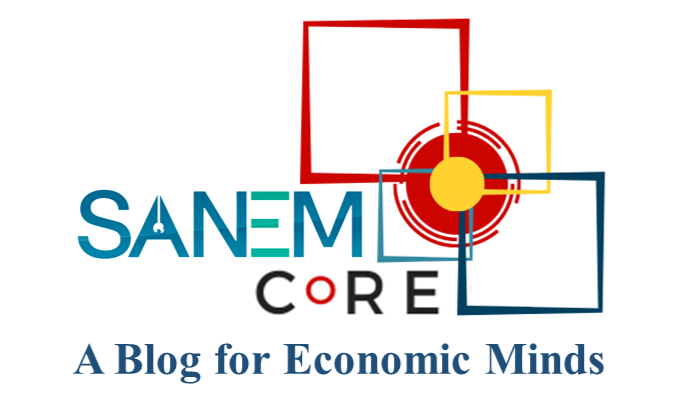During the last decade, in the immediate past Awami Leagues’ government, the economic landscape of Bangladesh had been defined by deepening crony capitalism – a situation in which business success is not defined by competitive advantage but by political connections and favouritism. Crony capitalism dented the economic landscapes and discouraged the growth of private investments from both domestic and foreign fronts. At the heart of crony capitalism lies the fact that business entities that enjoy intimate company with political elites always turn out to be at an undue advantage. These advantages range from preferential access to government contracts and resources to leniency in regulation and tax exemptions.
The quintessential example is the banking sector, in which a few politically connected conglomerates grabbed a disproportionately large amount of loans by showing little or no collateral. Lack of proper regulatory oversight resulted in increased nonperforming loans, which now stand as one of the major potential risks to the financial sector’s stability. Furthermore, there were instances of a high level of contractual agreements within the power and energy sector, with firms having obvious political connections, irrespective of their doubtful feasibility or efficiency, especially regarding IPPs.
Crony capitalism essentially cannot avoid giving more undue privileges to the chosen few in business at the cost of a majority section of private investors. This uneven playing field thus discourages genuine entrepreneurs who do not have any political connections from competing effectively owing to stifling innovation and competitiveness. SMEs, or small and medium enterprises, which are crucially important for employment generation and diversification of the economy, usually cannot scale up because of exclusion from lucrative markets dominated by politically connected firms.
This is not easy for foreign investors either. Foreign investors are avid to invest in those sectors that offer high growth possibilities, but they keep away because the playing field is never really level. A lack of transparency in regulatory matters and the threat of arbitrary policy changes persisted, which prevented the emergence of a favourable business environment for foreign investors. This is one of the reasons why foreign investment didn’t register pace in Bangladesh.
The strong sway of crony capitalism kept the general business climate unconducive for most private investors. Inefficiencies in regulatory mechanisms and bureaucracies, along with non-transparency of systems, posed serious problems concerning doing business. For example, essential permits, licenses, and approvals took a long time and involved excessively high costs unless moved by political patronage.
Besides, the legal regime related to the protection of intellectual property rights and the enforcement of contracts remained weak, a fact that is of primary concern for both local and international investors. In a nutshell, without strong legal protection, companies risk losing their investments or intellectual property to powerful competitors who could utilise their political networks for their benefit.
Several policies and practices were tailored to benefit politically connected businesses at the expense of the broader economy. The banking sector saw a lot of new licenses, many of which were given to politically connected businesses, which therefore enjoyed preferential credit access, leading to increased NPLs. Defaults were all over the place on account of less than adequate due diligence, with hardly any consequence for the high-profile large defaulters. And once more, tax evasion was a common feature, with selective enforcement allowing politically linked businesses to escape through waivers and amnesties. In the power sector, independent and quick rental power producers were given privileged treatment on account of political connections, while mega projects of infrastructure construction were usually awarded in a nontransparent manner to politically favoured companies. Real estate dealings had preferential land allocations while strong groups manipulated the stock market. Politically connected industries benefited from export incentives and trade policies, which disadvantaged smaller competitors. This dominance of crony capitalism in Bangladesh was facilitated by a strong “anti-reform coalition” among corrupt political elites, corrupt business elites, and corrupt bureaucrats.
One of the more disquieting features of the form taken by crony capitalism in Bangladesh was the degree to which its politically connected businesses were able to influence the policymaking phenomenon often referred to as “state capture.” It allows cronies to shape laws, regulations, and policies in their favour. Examples of state capture include those in industries such as telecommunications, RMG, banking, real estate, and energy, where major policy decisions were doled out to a few select players.
The policy distortions favouring cronies led to an economy that is less diversified and more dependent on a few sectors dominated by a handful of influential players. This concentration of economic power stifled competition by raising barriers for new entrants and inhibited the growth of sectors that could otherwise drive economic diversification and sustainability.
Corruption in Bangladesh had been all-pervasive and acted as a facilitator for the emergence and consolidation of crony capitalism. Paying bribes or kickbacks had been a common practice for receiving contracts, as well as for hastening bureaucratic processes or evading regulatory fines. Such an atmosphere discouraged ethical business practices, besides increasing the cost of doing business for those who do not indulge in corrupt practices.
Corruption didn’t stop there. It siphoned off the wealth from the public sector since money that would have been used to build infrastructure, healthcare, or schooling was instead spent on self-serving interests. It misallocated resources that ought to be contributing to inclusive economic development.
The solution to the problem of crony capitalism needs to be multi-faceted. In the first instance, there needs to be a far greater commitment to the rule of law. Anti-corruption measures have to be enforced; regulatory bodies must be given full independence to do their job without any kind of political interference. In that way, enterprises will have equal opportunities to compete with each other, where success will be determined by competence and competitiveness rather than by political relationships.
Secondly, the processes of government procurement and policy formulation should be made more transparent. E-procurement systems reduce personal contact between businesses and officials, thereby reducing avenues for corruption. Besides, the policies should aim at encouraging fair competition, innovation, and investment across all sectors, not just chosen sections.
Third, the institutions involved in monitoring the financial system need more strengthening. Banking regulations have to be tightened, and Bangladesh Bank must have the authority as well as resources to enforce compliance without discrimination. The non-performing loans will require not only financial restructuring but are also underlined for future fresh lending to be based on full transparency and risk-based criteria.
It is equally important to outline a culture of accountability among political leaders and business elites, and they must be made accountable for unethical practices, while at the same time, civil society organizations must be encouraged to raise their voices for greater transparency and reform. A strong legal framework that punishes corrupt practices and protects whistleblowers would go a long way in undermining the structures of crony capitalism.
Crony capitalism is deeply ingrained and has gotten in the way of the possibility of a truly dynamic and inclusive economy that Bangladesh could have attained. Unless the structural issues that create and sustain crony capitalism are resolved, a propitious investment climate cannot be achieved and sustainable economic development through broad-based domestic and foreign investment ensured. Only meaningful reforms could unshackle the economy, which is a prerequisite for the journey of the country to an equitable and prosperous future.
This article was first published in the November, 2024 edition of the Thinking Aloud



RECENT COMMENTS